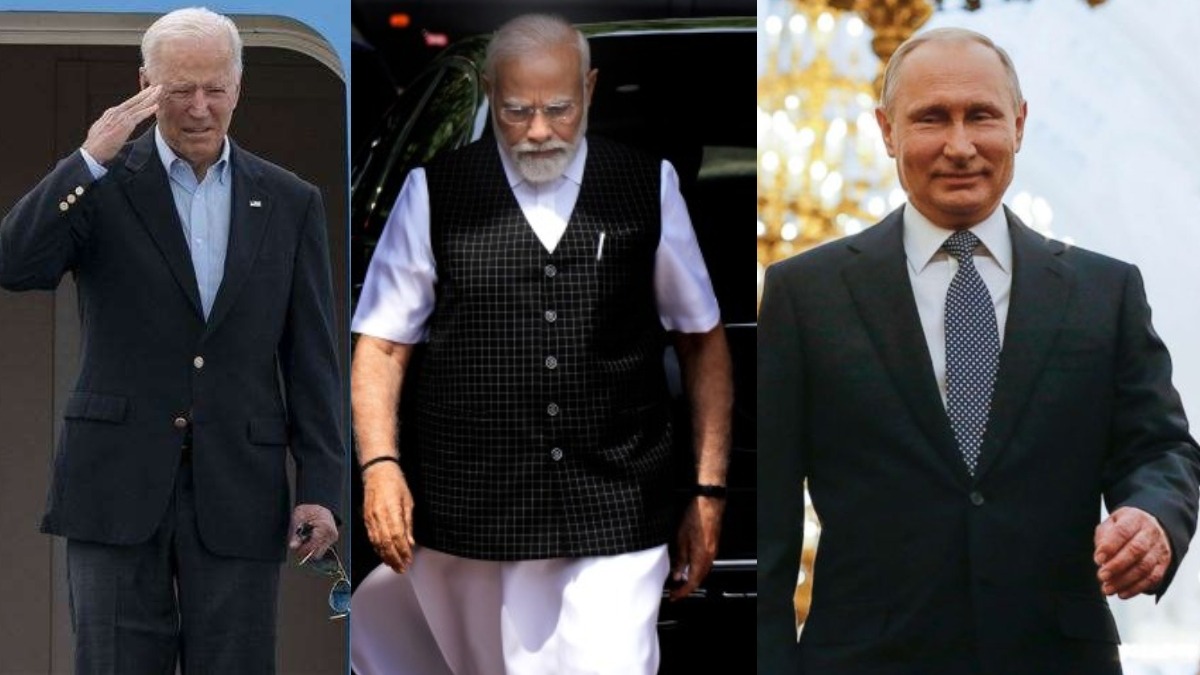By all standards, the world is at war with itself as never before since the end of World War II in 1945. Indulging in wars is indeed more than serious business where conflict termination objectives need to be well thought out for the costs, destruction, and human displacement ensuing from modern-day wars can be horrendous and humongous. Even where nations are not evenly matched, the loser or the weaker can cause mind-boggling destruction and damage to its relatively stronger foes.
The amazing aspect of conflicts, since the last few decades, is that a relatively new breed of credibly violent protagonists have come to the fore, dubbed as non-state actors, who, without the shackles of responsibility, still have the capability of inflicting untold damage on their adversaries. That some nations do utilise these so-called non-state actors for their nefarious objectives is a well-known phenomenon. This practice has given birth to so-called proxy wars employing terrorism, as its tactic has become, regrettably, a popular and relatively low-cost strategy with some nations. Pakistan and Iran using terrorism in myriad ways and employing terrorists of various hues for their political objectives are apt examples.
Since the end of the terribly devastating pandemic, COVID-19, which caused existential and economic damage to the entire world from 2020 till 2022, instead of the world seriously grappling with its future existence, kinetic conflicts across the world have emerged in the last three years.
According to some well-established international security analysts, there are 56 conflicts raging currently in the world, spanning 92 nations. The ones which we are all familiar with and whose violent footprint shows no signs of abating are: the two and a half years of the Russia-Ukraine War, the Israel-Hamas conflict in Gaza since October 2023, the Israel-Hezbollah conflict in Lebanon and Syria threatening now to graduate into an Israel-Iran conflict, and kinetic conflicts in the Democratic Republic of Congo, Sudan, Yemen, and Myanmar.
That the customarily overly ambitious China, with its unsatiated appetite to gobble up territories, not its own, is also eyeing tiny Taiwan to annex it as soon as it will be possible, remains a distinct possibility. Interestingly, according to very recent media reports, now Iran is trying to rope in Russia on its side in its conflicts with Israel, which may then result in a major US-Russia problem.
Impact Shorts
More ShortsAll these conflicts have collectively ensured more than 75,000 fatalities, with many more injured and millions of innocents displaced. Bristling towns and thousands of buildings razed to the ground. Global supply chains, international trade, and normal lives have been shattered, and the worst, according to some, is still to come. That many hydroelectric plants, energy-producing installations, and disruption of merchant shipping, especially in the Russo-Ukraine context, are clear. Israel too is contemplating retaliatory missile strikes on Iranian oil infrastructure and ports. That agencies like the UN, its Security Council, or other global financial institutions have not been able to put an end to most of these unjustified and fruitless conflicts speaks poorly of the world at large, especially the efforts or inclinations of the so-called powerful nations in the world. Is the world inexorably marching towards an Armageddon? It is anyone’s guess!
Back home, India has made some laudatory statements by appealing to the adversaries to end both the Russo-Ukraine and Israel-Hamas wars, respectively. Prime Minister Narendra Modi’s oft quoted saying in his meeting with Russian President Putin that “this is not the era of war” is indeed apt. Yet that is not enough. India, since its independence and as a leader of the Non-Aligned Movement, under its first prime minister, Jawaharlal Nehru’s pacifist world view, has always carried a moral authority. And now, with a rising India on the world stage, it can and should do much more.
Events if they worsen in West Asia will have major repercussions as regards India’s energy needs, and thus India must not remain an indifferent bystander but be far more proactive than hithertofore. Let our government host a summit for leaders of Israel, Iran, the US, Russia, and itself in New Delhi and thrash out a common minimum programme that is acceptable to all. The basic premise that both Israel and Palestine have an inalienable right to jointly exist cannot be diluted.
The Abraham Accords, formalised in 2020 and discussed and pushed thereafter under the aegis of successive US Presidents, are a suitable agreement to adopt. Prior to that New Delhi Summit, India must call for an immediate cease-fire to prevent further unnecessary bloodshed in both West Asia and Ukraine. A sincere effort for these currently at-war nations, including sending our External Affairs Minister in person to these nations, will help and be equally lauded on the global stage.
The world has witnessed cataclysmic bloodshed and suffering in the last over two years or so. Millions of the helpless, innocent, elderly, infants, and yet-to-be-born children have suffered for no fault of theirs. The days of Alexanders, Changez Khans, and Hitlers are all over. Humanity can scarcely absorb nuclear conflagrations, which appear to be in waiting. President Vladimir Putin has already issued a statement that he will not hesitate to use nukes if required. Even Israeli Prime Minister Benjamin Netanyahu has exclaimed that he will turn Lebanon into Gaza—both these statements are unworthy of heads of state in today’s world. As terrorism or expansionist tendencies anywhere in the world must be defeated, preferably by global efforts, the means to ensure that must also justify the ends. Disproportionate retaliation is not the answer. Let a globally respected India immerse itself in bringing sanity and harmony to this violence-stricken world.
The writer was India’s first chief of the Defence Intelligence Agency and is a renowned military expert. Views expressed in the above piece are personal and solely those of the author. They do not necessarily reflect Firstpost’s views.


)

)
)
)
)
)
)
)
)



